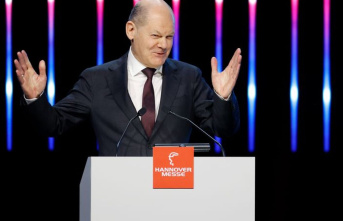CANBERRA (AP) -- Australia’s central bank raised its benchmark interest rate Tuesday for the first time since more than 11 years. In a potentially dangerous move for a government set to seek reelection May 21, the cash rate jumped from 0.1% to 0.335%.
The official data that showed Australia's inflation increased to 5.1% from March last year was widely anticipated. This is the highest annual rate recorded since 2001 when a 10% federal consumption tax was introduced.
The March quarter's inflation was 3.5% higher than it was three months ago. March's result was driven by an increase in fuel and housing prices, as well as food shortages caused by recent Australian floods.
The Reserve Bank of Australia adjusts its interest rates to maintain a target inflation range of 2%-3%. Philip Lowe, the bank's governor, stated that inflation had risen more than expected but was still lower than in advanced economies.
Lowe stated that the economy was resilient and that inflation has risen faster than expected.
"There are also signs that wages are growing." Lowe said that this and the low interest rates make it a good time to normalize monetary conditions.
Since November 2020, the cash rate was at an all-time low of 0.1%.
Lowe stated in November that the rate could stay at this level until 2024, despite inflation caused by pandemics.
In November 2010, the bank increased its interest rates. The cash rate rose by 25% to 4.75%.
This is the first time since 2007 that the bank, whose independence from the government was established in legislation in 1996 has moved interest rates during a federal election.
After the benchmark rate increased by 25% to 6.75% in November 2007, Prime minister John Howard's conservative government was defeated after more than 11 years of rule. Howard apologized and expressed sympathy for mortgage holders.
Prime Minister Scott Morrison's Conservative Government is seeking a rare fourth term of three-years at the May 21 elections.
Morrison denied that a journalist suggested that the rate increase would cost his government the election.
His government had helped Australians to cope with rising prices in March by temporarily halving gasoline tax at a cost $3 billion Australian dollars ($2.1billion). At a cost of AU$8.3 billion ($5.7 billion), the government provided tax offsets to millions of low- and medium-income earners.
"I sympathize for Australians who are facing high living costs. Morrison stated that he sympathizes with Australians who face higher home loan repayments.
Morrison said, "When you look at the world, there's not a place that people would rather go than right here in Australia. The reason is because of the way we've guided this country through one our most difficult times."
According to the Australian Bureau of Statistics, residential property prices in Australia increased by 24% last fiscal year. Due to the rising cost of housing, Australians are among the most indebted people in the world. They are also not prepared for an increase in the cost money.
Jim Chalmers, spokesperson for the Opposition Treasury, described the rate increase as a "full-blown Cost of Living Crisis on Scott Morrison’s Watch."
Chalmers stated that Scott Morrison's economic credibility had been damaged and is now completely destroyed.
On Tuesday, the S&P/ASX 200 dropped 0.3% to 7,328.80.







